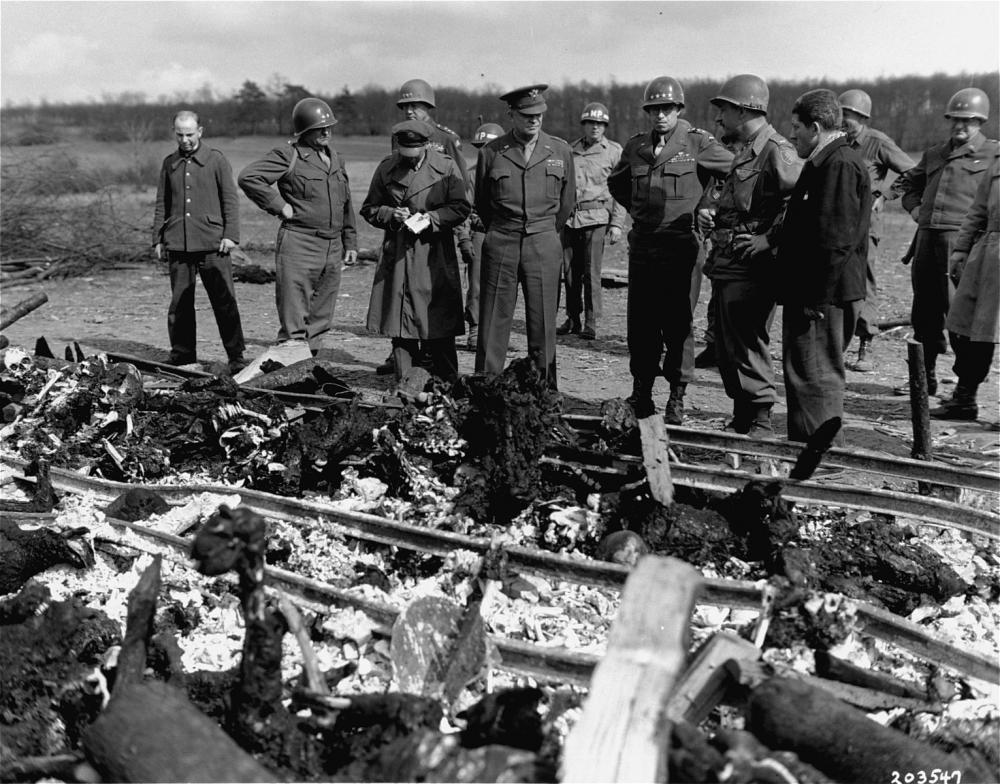Just last week in The Washington Post, I read about the installation in the District of Columbia of a sculpture based on an iconic picture of General Dwight D. Eisenhower as he addressed soldiers belonging to the 101st Airborne Division just prior to the massive invasion of the Normandy beaches during World War II on June 6, 1944. Of course, the date is better known as D-Day.
 He knew, and they knew that many of those listening to the Allied Commander and future president of the United States would die in what was the greatest amphibious invasion in military history. Surprise belonged to the Allied forces, tactical advantage to the Germans.
He knew, and they knew that many of those listening to the Allied Commander and future president of the United States would die in what was the greatest amphibious invasion in military history. Surprise belonged to the Allied forces, tactical advantage to the Germans.
Eisenhower understood the horror of war, the maiming and loss of lives of American, British and Canadian soldiers fighting to rid the world of Adolf Hitler and his merciless diet of tasteless Nazism. He knew too the physical destruction of once beautiful cities.
Once combat ended in Europe, Eisenhower saw first-hand the results of another unconscionable act of brutality: the killing of six million Jews. He viewed the worst of man’s inhumanity to man.
Eisenhower, along with Generals Bradley and Patton, visited Ohrdruf Concentration Camp, part of the infamous Buchenwald network of forced labor and concentration camps in central Germany. He had a specific purpose. He wanted to see for himself the bodies of Jewish prisoners and the emancipated but living human beings who somehow avoided death.
Eisenhower wished to be able to tell the ugly truth about concentration camps should naysayers in the future claim that the holocaust never happened. He was uncannily prescient.
Yesterday was the 75th anniversary of the liberation of the German camp in Nazi-occupied Poland known worldwide as Auschwitz. About 1.1 million Jews either died or were killed at this site of mass murder.
The guiding principle of the United States Holocaust Memorial Museum in Washington, DC is never to forget (and maybe forgive) the horrors imposed in the name of anti-Semitism. It was a nightmarish persecution of people guilty only of being Jewish.
It was an evil attempt to obliterate the Jewish religion and culture in Europe. Hitler used the extermination of Jews to rally Germans to feel a sense of superiority and empowerment to rule the world. He was cruelly shrewd, a masterful propagandist.
It was a concept born out of a sickness, to use Jews as scapegoats for the problems that bedeviled Germany after World War I. He converted a formally civilized country into a hotbed of extermination.
Anti-Semitism is still a thriving scourge in and outside our country. Hate crimes in Pittsburgh, PA, Poway, CA, New York City and elsewhere are despicable examples of terror still bedeviling Jews. The shameful killings and acts of bias are increasing, according to the Anti-Defamation League.
So is nagging fear. Memories of the holocaust are strikingly searing. Jews find themselves haunted by the past.
Why is anti-Semitism on the rise?
I am neither a theologian nor a political scientist. I am treading on thin philosophical ice. But I will wade where I shouldn’t.
Our president has fanned the festering flames of prejudice by his asinine attacks on Muslims and minorities. He leads by insult and baseless claims.
Hatred is ingrained in the human condition. If given permission by an irresponsible leader, “bad angels” feel emboldened to use violence as a tool.
Both in our nation and Europe, elements of the population feel disenfranchised and disrespected. They feel their lives and livelihoods are threatened by minorities.
For reasons beyond my comprehension, Jews become a common target. Festering resentment translates into acts of violence and harassment.
I can offer no prescription for tolerance. I hope and pray that civic, political, business, religious and academic leaders will speak up—constantly—against anti-Semitism and personal degradation. Not just platitudes but genuine disgust.
Silence is unacceptable. It feeds the beast of bias.
President Eisenhower governed during a more placid time in the early 1950s. He was a strong, tough leader, often under-estimated in the political world.
Ike understood the power of peace and wanton destruction wrought by warfare. His visit to a concentration camp enabled him to view inhumanity at its basest level.
I liked Ike. Still do.
Columnist Howard Freedlander retired in 2011 as Deputy State Treasurer of the State of Maryland. Previously, he was the executive officer of the Maryland National Guard. He also served as community editor for Chesapeake Publishing, lastly at the Queen Anne’s Record-Observer. In retirement, Howard serves on the boards of several non-profits on the Eastern Shore, Annapolis and Philadelphia.


